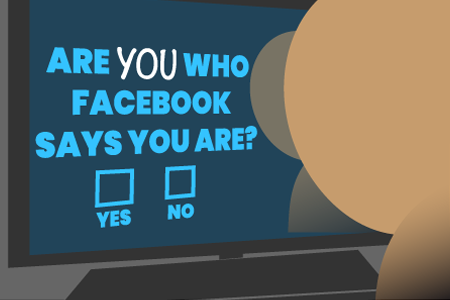In today’s connected marketplace, everybody collects user data. As the nation’s largest social media platform, Facebook profile data offers the best opportunity to study user attitudes toward collection of their personal data. Pew Research Center conducted just such a survey among Facebook users.
On the one hand, 74% of respondents did not even realize their data was being collected and as a result their interests were “classified” according to Facebook’s algorithm. (This reflects a naive attitude toward being a digital citizen in the 21st century; an illustration of the saying, “there is no free lunch.”) Facebook has a market capitalization of over $428 Billion as of 1/25/19, largely on the strength of advertising power which is enabled by rich data.
Facebook Profile Data May Not Be What Users Think
It is significant that so many users of Facebook, and probably other digital platforms, are not aware that they are being profiled and their data collected. While there is a measure of transparency on the part of the collectors, diligence on the part of data subjects is lax. In the era of heightened efforts to codify and enforce personal privacy (see GDPR, California Privacy Protection Act), it is encumbent on users of all platforms to be aware of what is happening, and actively protect their personal data.
Facebook does employ some disclosure regarding data collection. Users can view their interest profiles by going “Your ad preferences” on their account page. Upon doing so, 88% of Pew survey respondents discoverd that profiles had been generated. While 59% reported these profiles as accurate, 27% reported that the profiles did not represent an accurate picture of their interests and affinities. Further, after reviewing how Facebook profiled them, 51% of users reported feeling uncomfortable with the practice.
As an illustration of the issues surrounding Facebook profile data gathering in practice, some user profiles include two categories of affinity: political, and something called “multicultural affinity”. For political affinity, 51% of users were categorized, with 37% of those saying the description fit them well, versus 14% who said it did not. For multicultural affinity, it shouldbe noted that it is more just that, an affinity, than a description of the user’s actual race or ethnicity. Facebook appears to be treading more lightly here, since only 21% of respondents reported being categorized in this area. Here, about 60% of users who were categorized said they do have at least a somewhat strong racial or ethnic affinity as assigned by the algorithm, while 37% said the affinity was not particularly strong.
Advertisers should take note of these potential audience responses. Facebook profile algorithms – and perhaps those of many platforms – are not perfect, and need to be taken with a grain of salt. Perhaps they are close enough for defining a marketer’s target, but that is for advertisers to determine for themselves.




